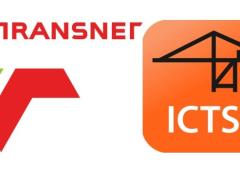As the election drama in America drags on into its third day, with Joe Biden looking ever so likely to become the next President of the United States (Potus), the USA Poultry and Egg Export Council (USAPEEC) has highlighted some interesting insights with regard to South Africa and the next Potus.
Responding to a post Freight News ran on 29 October, “Biden vs Trump: a brief look at what’s best for South Africa”, USAPEEC regional director for sub-Saharan African, Zelda Sharp, said there were several key factors that should be considered about US-South Africa poultry interests, especially in relation to the African Growth Opportunity Act (Agoa).
Her remarks are particularly relevant in light of certain misconceptions with regard to supposed challenges that the US-SA poultry trade could face under Agoa once the new Potus has been inaugurated on 20 January.
In respect of alleged chicken dumping in the past on the part of America dangling Agoa benefits as a drumstick to prevent SA from blocking US poultry imports, Sharp said: “Agoa was renegotiated in 2000 but was not under any pressure, as poultry only became part of negotiations in 2015.
“US poultry had an anti-dumping duty against them for bone-in chicken (wings, chicken leg quarters, drumstick or thighs) until 2015, when the 65 000-metric-ton quota was agreed under the Agoa agreement,” she added.
“The first shipment of bone-in product arrived in February of 2016.
“These were certainly no off-cuts as this is the same poultry that is consumed in the USA. The USA consumes 75% of all the chicken leg quarters, whole legs, drumsticks and thighs they produce, and only export 16% of their total poultry production to over 120 countries around the world – and South Africa is no exception.”
Additionally, Sharp explained that “the USA have no preferential tariffs on the 65 000-metric-ton quota. We pay the regular MFN (most favoured nation) duty of 62% for all imported bone-in products.
“Thirty-eight countries in Africa were eligible for Agoa benefits in 2020, and in 2015 US Congress passed legislation modernising and extending the programme to 2025. All countries currently benefiting from Agoa will be at risk in 2025 when Agoa officially comes to an end, unless this is renewed by Congress.”
Most important of all, Sharp stressed that the lion’s share of imported poultry product coming into South Africa was being distributed to the poorest regions of the country and sold through various retailers catering to the lower LSM (living standards measurement) groups.
“This, in many instances, is the only poultry that is affordable for low-income consumers and plays an important role in food security. South Africa has been a net importer of poultry for many years, but there is a gap in the market which is filled by imports from around the world.”













